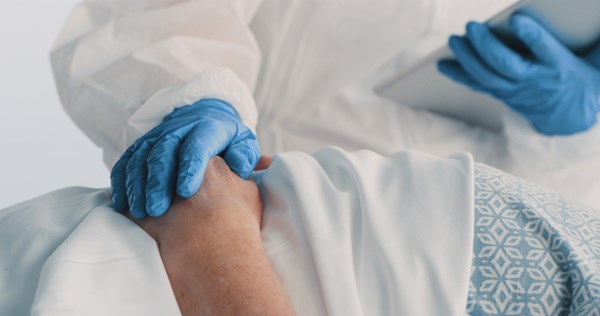Our dead are never dead to us, until we have forgotten them. -George Eliot
When the time of death was called and the moment of silence was finished, we turned and went back to our work. The EMS staff left. The nurses and residents entered notes on the computer. The attendings turned their attention to the numerous other patients streaming into the emergency department in need of help.
I was struck at that moment by how little I felt, like a wall stood between me and the emotions I expected myself to be feeling.
The fact that I felt so little made me feel strange and guilty. I had known this moment would come at some point in my medical education, and I had been preparing for what it would be like, imagining how I would feel, how I would react to witnessing my first patient death. When it finally did come, though, in the first week of my first third-year rotation, it was not the emotionally haunting experience I had expected. I wanted to feel devastated, distraught, because I felt that would offer this man the respect he deserved in death. But the truth was, I didn’t.
I was, perhaps, in shock, and I certainly recognized the sadness of the event, but the tears did not flow as I had thought they would. I did not need to step out or take some space. I simply went on with my day, trying to be helpful, trying not to embarrass myself, trying to be the eager third-year student I was supposed to be.
For this man, everything had changed. Everything was over. He had been brought to the emergency department unconscious with no identification, and despite the best efforts of the team he could not be resuscitated. Though in a theoretical sense I recognized that I had just witnessed something literally life-altering, the reality was that for me everything continued exactly as it had been. I did not know this man. I did not know the most basic things about him, not even his name. It is a strange thing to realize that a person’s death has no real impact on the world besides its impact on the people who know and love that person. Every single other person on earth continues on living, not knowing that he is gone. There is no universal moment of silence, no international grieving. This reality is particularly acute when the patient is unknown, when there is no time to connect with them as a unique individual, but rather only as a body in crisis.
In thinking about this experience, I have come to realize that as medical professionals we have the responsibility to witness these unknown deaths, to remember these individuals.
Someday, someone will wonder what happened to their son, their brother, their friend, their lover, their father - but they will have no way of knowing. They have been deprived of the right to grieve, to remember, to reflect on what this man meant to them. And this man has been deprived of the right to be grieved, of the right to be remembered for the good things he did and the people he cared for.
I cannot take their place.
I cannot claim to, or even try to, experience the grief that they should feel. But I can remember this man for them. I can remember what he looked like, what he wore, and I can remember his last moments and the story of his death. It is not enough. It is not what he deserved. But it is something.
Heart of EM is EM Resident’s storytelling series sharing the triumphs, failures, experiences, and reflections that impact our personal wellness in the emergency department and beyond.



